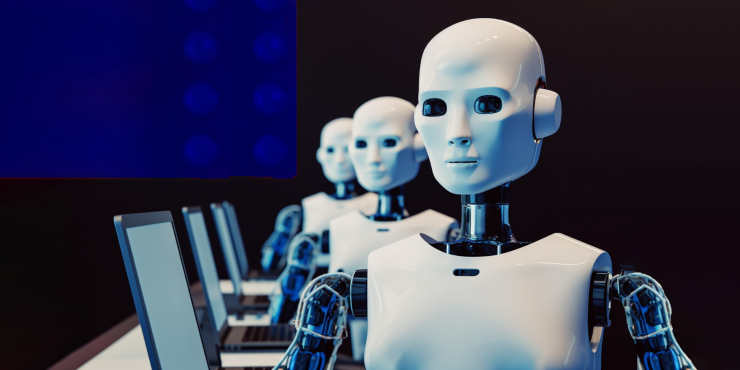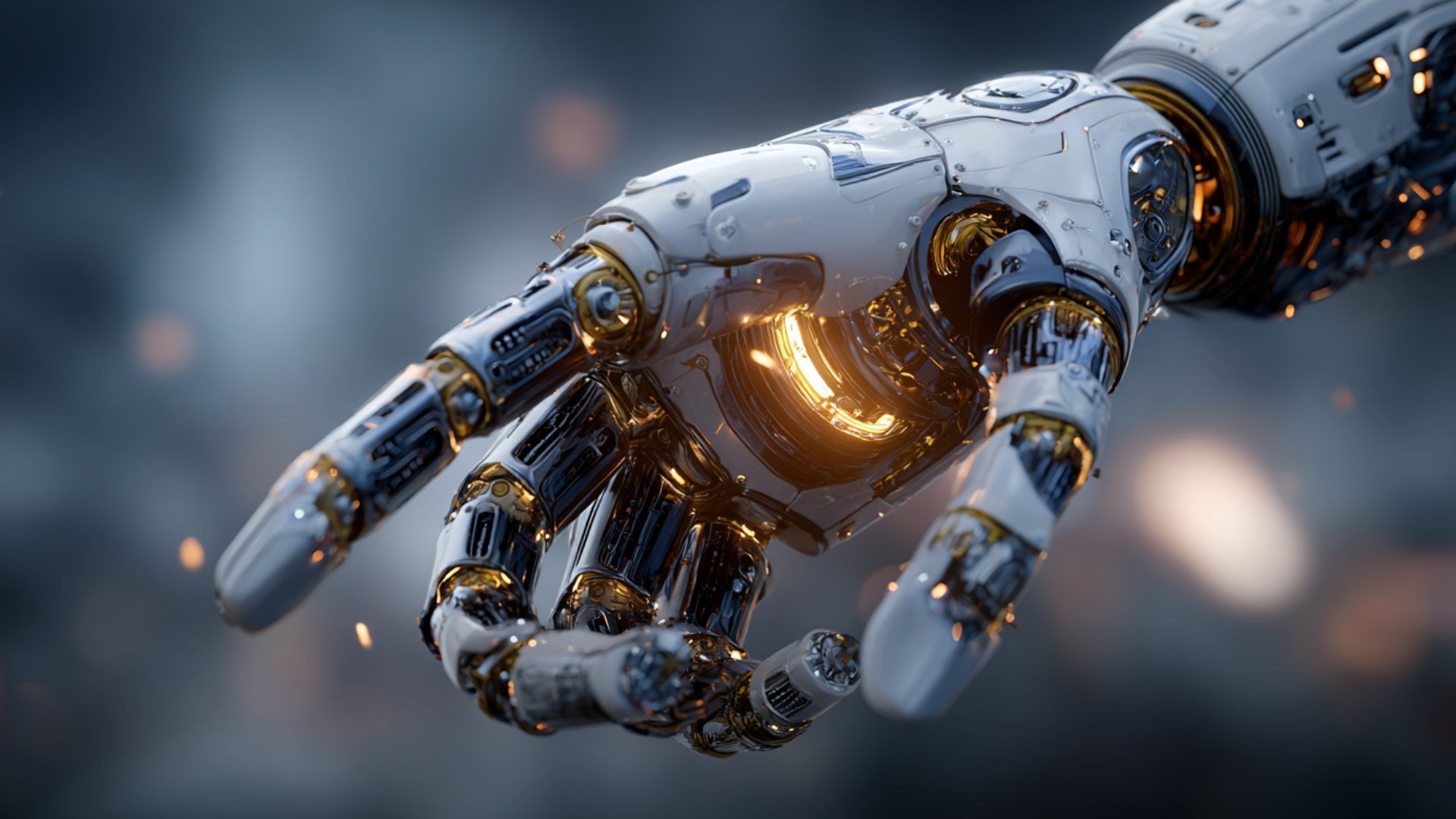The Role of Digital Workers in Enhancing RPA for Intelligent Business Automation

You've probably noticed the speed at which technology is advancing lately. We are talking about robotic process automation (RPA), which has become a game changer. RPA is a modern and convenient technology. Its goal is to eliminate repetitive tasks. Speaking, you turn them over to robots. It allows you to save your time and resources with fewer mistakes. Consequently, you'll free up your actual employees for more strategic or creative endeavors.
However, the true strength of RPA lies in its evolution towards intelligent automation. In this case, digital workers are more than just bots. They learn from data, adapt quickly to new situations, and make confident decisions. This integration allows companies to unlock new levels of efficiency and flexibility. And accordingly, you pave your way to more thoughtful and responsive operations.
In this study, we'll look at how these transformative forces are changing our work. The synergy between digital workers and RPA promises to revolutionize the use of technology. So, let's take a closer look at this importance.
The Evolution of RPA into Intelligent Automation
Robotic process automation has come a long way in its development. And at the moment, it's not just task automation. It is a definite intellectual branch of development in our world. Humans originally directed RPA to automate repetitive, rule-based tasks. And it worked according to a pre-designed instruction. However, with the integration of AI capabilities, RPA has evolved into a more intelligent system. It now learns, reasons, and makes decisions independent of humans.
Digital workers play a crucial role in this evolution of RPA. They are the ones who add specific cognitive abilities. These workers are always based on artificial intelligence algorithms. But their advantage is that they can analyze massive data sets. Accordingly, they can recognize patterns and adapt to changing conditions. This combination allows enterprises to achieve intelligent automation. And processes become more dynamic and responsive to the environment.
This integration of digital workers with RPA not only increases efficiency. It enables predictive capabilities. With access to a wealth of data, digital workers can anticipate future needs. And as a result, they can proactively suggest optimizations or solutions.
Understanding Intelligent Automation and RPA
Intelligent process automation RPA goes beyond traditional RPA. It is only because of the smooth integration of robotic process automation with AI capabilities. The fact is that basic RPA works according to specific predefined rules. Intelligent automation adds a clever layer. This allows systems to adapt and learn.
| Traditional RPA | Intelligent Automation | |
|---|---|---|
| Definition | Automates repetitive tasks with predefined rules | Enhances RPA with AI capabilities for learning and decision-making |
| Capabilities | Executes tasks as programmed | Learns from data, adapts to new scenarios, and makes decisions |
| Flexibility | Limited to predefined tasks | Can handle dynamic processes and adapt to changes |
| Scalability | Scalable for repetitive tasks | Scalable for complex and evolving processes |
Digital worker RPAs play a vital role in this evolution. Equipped with AI algorithms, digital workers can analyze data. They recognize patterns and react to new situations in real-time. By integrating such workers with RPA, companies can achieve a higher level of automation. And it will not only be efficient but also adaptive to meet the changing needs of the organization. It's also worth highlighting the synergies between all of this:
- Efficiency. Combining RPA with digital optimizes processes. It reduces manual operations and increases productivity.
- Accuracy. Digital workers improve accuracy by eliminating human error. They work on consistent adherence to predefined rules and algorithms.
- Innovation. Intelligent automation fosters innovation. It allows digital workers to learn from data. They can suggest improvements or optimizations to existing processes.
- Flexibility. With the ability to adapt to changing conditions, you make the business more agile. It responds quickly to market demands.
- Cost reduction. With intelligent automation, you reduce operating costs while maximizing ROI.
Enhancing RPA with Digital Workers

Digital workers add cognitive capabilities to automate complex processes. While the traditional RPA is good at handling repetitive tasks, digital ones extend their ability to solve problems. They help in decision-making and learning from unstructured data sources.
Unstructured data gets analyzed by digital workers using artificial intelligence algorithms. It contains text, photos, and video. It enables them to extract data and make educated judgments. It will allow organizations to automate operations requiring complicated thinking. Examples include consumer engagement and fraud detection.
In addition, RPA and intelligent automation can learn from their own experiences. It allows them to improve their work continuously. They can adapt their behavior by observing patterns in data and user interactions. It will enable them to optimize results and minimize errors. This iterative learning process allows enterprises to achieve greater efficiency and accuracy.
This integration allows enterprises to automate a wider range of processes and tasks. From simple repetitive activities to complex decision-making processes. By leveraging combined capabilities, organizations can optimize operations. It will improve productivity and stay ahead in today's competitive landscape.
The Impact of Digital Workers in RPA
Digital workers have revolutionized RPA systems. They have dramatically improved their efficiency, scalability, and effectiveness. These virtual assistants can perform repetitive tasks with remarkable speed and accuracy. It significantly reduces the time and resources required to accomplish them. Their ability to work tirelessly around the clock ensures that tasks are completed promptly.
In addition, digital workers allow systems to be easily scaled per the requirements. Unlike humans, digital workers can perform a large volume of tasks simultaneously. They are entirely free from fatigue and do not make mistakes. This scalability allows businesses to adapt to fluctuating workloads. Simply put, you can increase productivity without the need for additional resources.
In terms of efficiency, digital workers add intelligence to RPA processes. It allows them to tackle complex tasks that require decision-making and analysis. For example:
- In finance, digital workers can automate invoice processing. They can identify anomalies and errors with greater accuracy than traditional methods.
- In customer service, they can interact with customers and respond to inquiries. They can solve problems offline, improving the overall quality of service.
Overall, the integration of RPA & intelligent automation has transformed various tasks. From data entry and document processing to customer support and fraud detection. Their impact on efficiency, scalability, and effectiveness is undeniable. It makes them an invaluable asset in today's businesses.
Digital Workers: Bridging the Gap in RPA & Intelligent Automation
Digital workers play a critical role in bridging the gap. And we're talking about, in fact, a global gap between the essential functions of RPA and the broader goals of intelligent automation. As we've written before, traditional RPA is great at automating repetitive tasks. It works according to predefined rules. Digital workers, on the other hand, extend those capabilities. They add cognitive abilities such as learning, decision-making, and adaptation.
By integrating intelligent automation RPA, companies can achieve end-to-end automation of complex processes. RPA handles tasks, and digital workers extend these capabilities. It comes at the expense of intelligence and flexibility. For example, in finance, RPA can automate invoice processing. And digital workers analyze data for anomalies. They make decisions based on the findings.
Similarly, in customer service, RPA can perform routine queries and data entry tasks. Digital workers, on the other hand, communicate with customers in natural language, understand their questions and provide answers. This complementary relationship between digital workers and RPAs ensures the ideal. It is how businesses can achieve seamless automation of all their operations.
Overall, digital workers bridge the functions of RPA and the broader goals of intelligent automation. It enables enterprises to automate complex processes and achieve greater efficiency.
The Application of Intelligent Process Automation (IPA) in Business
Intelligent process automation (IPA) combines robotic process automation (RPA) with artificial intelligence (AI) capabilities to automate complex tasks and decision-making processes. At the heart of intelligent automation is the use of digital workers. They are software bots equipped with AI algorithms to enhance RPA systems. These digital workers can analyze unstructured data. They can learn from past experiences and make intelligent decisions. It allows businesses to automate tasks that previously required human intervention.
IPA delivers on the promise of intelligent automation. It capitalizes on the unique advantages of digital workers. Unlike traditional RPA, IPA can handle dynamic processes and adapt to real-time change. Digital workers can interpret natural language and recognize patterns in data. They can even predict future outcomes, allowing companies to make faster decisions.
IPA also allows businesses to automate end-to-end processes across departments. From finance and HR to customer service and supply chain management. By integrating digital workers into RPA, organizations can achieve greater efficiency. It will ultimately lead to innovation and competitive advantage in today's business landscape.
Case Studies: Success Stories of RPA and Digital Workers
Now, why don't you take a look at some examples of successful utilization of RPA & intelligent automation:
| Case Study | Business Outcome |
|---|---|
| Finance Department | Reduced processing time for invoices by 75%, resulting in cost savings of $500,000 annually. |
| Healthcare Administration | Automated claims processing, leading to a 60% reduction in errors and saving $1 million in administrative costs per year. |
| Retail Operations | Optimized inventory management, decreasing stock outs by 50% and increasing sales by 10%. |
In the finance department example, the business integrates it to optimize invoice processing. The organization took a phased approach. They started by automating simple tasks and gradually moved to more complex processes. To familiarize employees with the new system, the owners conducted certain training sessions. Strategies included close collaboration between IT and finance and regular performance monitoring. Among the lessons learned was the importance of clear communication and stakeholder involvement.
The business used intelligent process automation RPA in the healthcare management case study. It enabled the organization to achieve application processing automation. The organization took a vendor-neutral approach. They chose the best technology for each task. They conducted regular audits to ensure regulatory compliance. Key strategies included data encryption and secure access protocols. These all helped protect sensitive patient information.
In the retail example, RPA and digital workers were used to optimize inventory management. The organization implemented real-time monitoring systems. It enabled tracking of inventory levels and demand forecasting. Cross-functional teams collaborated to develop automated reorder processes. Strategies included integrating RPA with existing ERP systems to seamlessly share data. Lessons learned include the importance of scalability and flexibility to adapt to conditions.
Key Considerations for Implementing Digital Workers with RPA

When implementing digital workers with RPA, companies must consider several critical factors. All because this is the only way businesses can ensure successful integration of RPA and intelligent automation:
- First, technology compatibility is essential. Businesses need to make sure that the AI capabilities of digital workers are in line with existing RPA systems. It will avoid compatibility issues and maximize efficiency.
- Second, staff onboarding is critical. You need to provide proper training and support. It will allow us to understand how digital workers complement functions and can collaborate. Clear communication and a change management strategy are essential to overcome resistance. It will ensure a smooth implementation.
- Third, process re-engineering is necessary. Businesses should review and optimize existing processes. It will maximize the benefits of digital worker RPA. Identifying repetitive and rule-based tasks suitable for automation and reworking workflows to take advantage of digital workers can significantly improve efficiency and productivity.
Overall, for successful integration, companies need to carefully evaluate technology compatibility. You must prepare your workforce to adapt and redesign some workflows. With these factors in mind, you can unlock the full potential of automation. It will enable meaningful business transformation.
Overcoming Challenges in RPA & Intelligent Automation Integration
Integrating intelligent automation and RPA can be challenging. However, there are solutions based on industry best practices:
- Technology compatibility. One common challenge is technology compatibility. To address this, companies should conduct a thorough compatibility assessment. Doing so is essential before implementation and ensures seamless integration.
- Staff adaptation. To address this, companies should organize comprehensive training programs. It will help employees understand the benefits of automation. You will be able to develop new skills needed to collaborate with digital workers. Clear communication and change management strategies are also essential. It will overcome resistance to change.
- Security. Ensuring security and compliance is another critical challenge. Enterprises should implement robust security measures. Encryption and access control are used to protect the data processed by RPA intelligent automation. Regular audits and compliance checks should be conducted.
Overall, the management of these elements is an essential component of effective integration. Addressing these challenges and adhering to industry best practices is critical. It will allow businesses to grasp the benefits of automation fully.
The Future of Intelligent Automation with Digital Workers
The future of intelligent automation RPA looks promising. One is the increasing adoption of advanced AI and ML technologies. Thanks to these advances, digital workers will become even brighter. They can analyze complex data sets, make more accurate predictions, and adapt faster.
In addition, we expect a shift to more autonomous digital workers. These advanced bots will be able to perform tasks with minimal human intervention. They will use sophisticated algorithms to learn from experience. It will allow for continuous improvement over time. It will lead to increased efficiency and performance of RPA systems.
We expect the collaboration between digital and human workers to become more collaborative. Digital workers will become increasingly intelligent and capable. And they will work together with humans, complementing their capabilities and improving productivity.
Overall, the future of the RPA digital worker is bright. Businesses that leverage these technologies and harness the full potential of digital workers will gain a competitive advantage in the evolving digital landscape.
Conclusion
In conclusion, it's essential to unlock the full potential of intelligent automation. And you can do that today with Newo.ai's digital workforce. With its advanced artificial intelligence capabilities, Newo.ai can revolutionize your RPA systems. Don't miss the opportunity to get ahead of the rapidly evolving digital landscape. Embrace the future of automation with Newo.ai today.
FAQ
Traditional RPA automates repetitive tasks according to predefined rules. Intelligent automation extends RPA with artificial intelligence capabilities for learning and decision-making.
Digital workers add cognitive capabilities to RPA systems. These are learning, decision-making, and adaptation. It enables the automation of more complex processes.
The key benefits include increased efficiency, accuracy, innovation, flexibility, and reduced cost of business operations.
Challenges include technology compatibility, staff adaptation, and ensuring security and compliance. Proactive management of these challenges is crucial for successful integration.


